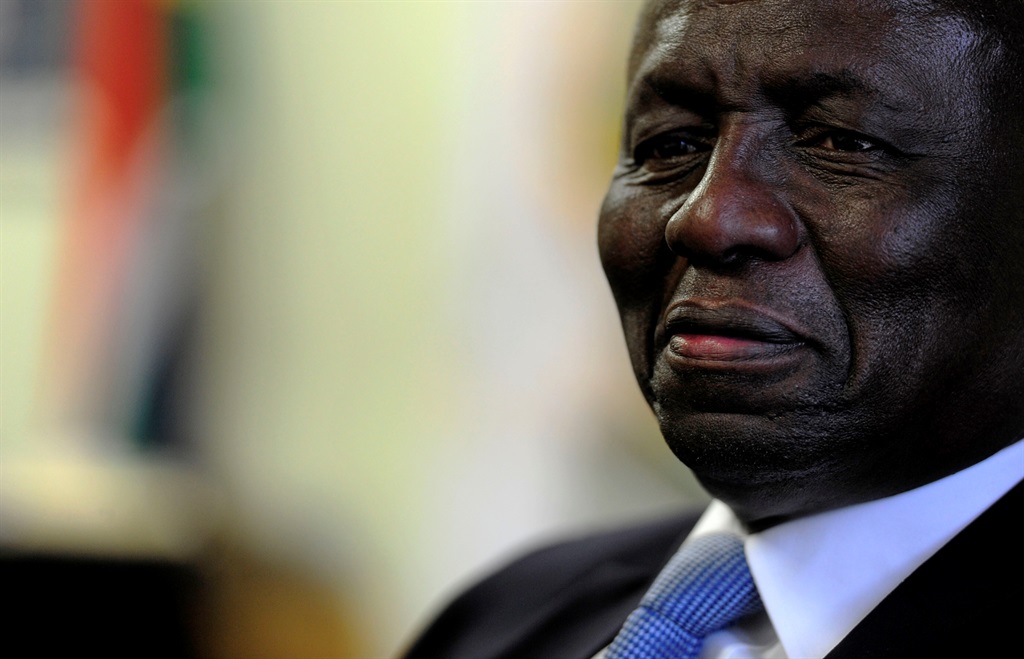
Education is central to truly transforming and equalising our society, and South Africa needs to find a way of ensuring that it is accessible – even if this means fewer bodyguards for politicians.
“It’s about access, quality and relevant education,”former deputy chief justice of South Africa, Dikgang Moseneke, told a forum at the Gordon Institute of Business Science during the launch of his memoir My Own liberator.
Speaking in his capacity as the chancellor of the University of the Witwatersrand, Moseneke said the claim for free tertiary education was a valid one: “The Constitution documents this entitlement to education in Section 29. Whereas the entitlement to basic education is absolute, further education is subject to progressive realisation and the availability of resources.”
He explained that in constitutional terms, this meant the state has a duty to progressively make further education accessible by conceiving a plan that will move towards universal access through the allocation of resources.
“This implies reprioritising a number of things. It may be that we can’t afford many bodyguards, or to provide the political elite with housing. But we must reprioritise depending on national objectives and interests.”
Moseneke said all efforts should be made to continue to keep universities open and to complete the academic year: “We must continue to protect the assets we have and the young people who would like to write and finish their exams,” he said.
On the importance of education
The country sorely needed education and the lack of respect for education in society is a deep problem, Moseneke said.
“Education is an individual effort, and is a function of commitment to personal agency. In 1994, something treacherous happened which eviscerated personal agency in many ways. The crisis is again with us.”
The South African project
Addressing how we incorporate the economic underclass into the larger social and economic activity of our society should be the greatest concern occupying all in the country today, Moseneke argued.
“As South Africans, we should be agreed on the need to find social equity. We should get the strongest and brightest among us to devise a sort of Marshall Plan as to how we can destroy poverty; get full and proper access to relevant education; provide communities with proper homes and reconfigure the history of colonial exclusion and disadvantage.”
A nonracial society as a valid pursuit
“Ultimately, we have to strive for a society that deprecates race because it is the lowest denominator among us,” Moseneke said.
“A just society cannot be based on race as the distinction on the account of race is bankrupt: It tells you nothing about other people – their capabilities, or their moral and psychological make up.
Stereotypes are unhelpful in building a just society.”
Those who are attempting to retain political power often “retreat into the laager of racism,” Moseneke said.
“We should never forget. The past must guide us and make us aware that we can brutalise each other as human beings. But in low moments, we should not retreat to retrogressive positions. We must continue as a people who deplore racism and respect diversity.
“Let us remain progressive. We have written our common convictions into the Constitution. What we have done is devise plans that will let our people have equal opportunities and quality of life. To deny the fruits of 1994 to all would be disingenuous.”
Strengthening democratic institutions
Moseneke argued that South Africa must reengineer its democracy in such a way so that the courts aren’t the only avenue to recourse.
“While there is contestation in our society like there is at present, institutions of democracy such as the Public Protector and the judiciary are like a dam wall. As the volume of water increases, the wall may not be able to hold. There has to be alternative sites of mediating difference so the judiciary doesn’t become everything for everyone.”
In order for our democracy to function, the country needs a National Prosecuting Authority, Independent Police Investigative Directorate, Public Protector and Auditor General that work, and good democratic processes, Moseneke said. “Adjudication was meant to be the refuge of last resort.”
“We should not have so much pressure on the judiciary that it caves in at some point or is overly politicised, or is rendered incapable of fulfilling its regular judicial function because of mediating what are essentially political disputes.
“I want to urge great caution. The ultimate form of accountability is not the courts or the Public Protector, but the people themselves. Electoral accountability is the most effective form of reining in governments,” Moseneke concluded.




 Publications
Publications
 Partners
Partners








